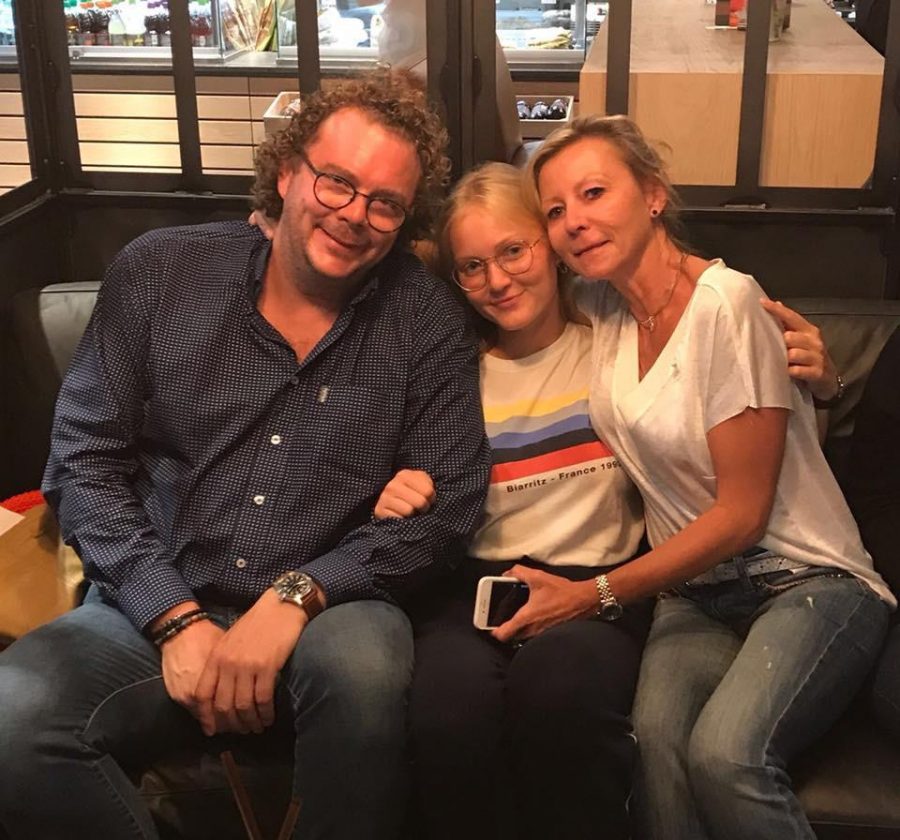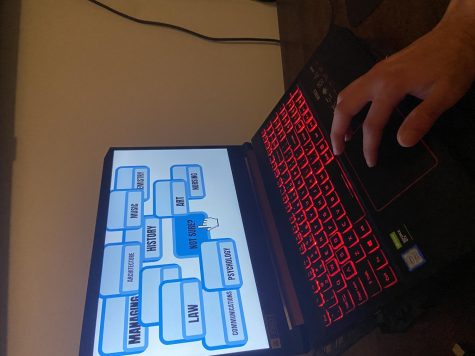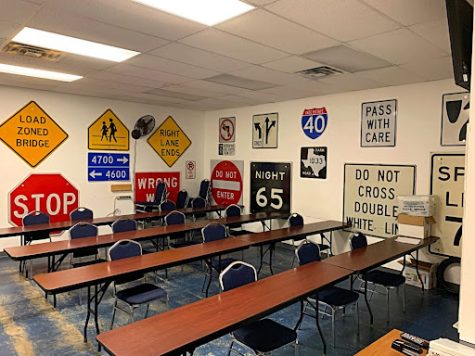Being a foreign student
The issues facing a foreign student, from the perspective of a Mexican exchange student
Hernan and her host family
Valentin Hernan, a student a ICES (International Cultural Exchange Services), describes some of the challenges being a foreign exchange student in the United States: trying not to be homesick, making American friends, getting used to a host family, and missing her boyfriend.
“I miss going to the city a lot, and being stuck in a town where (there) is nothing and, in part, some of rules, like you can’t use Uber,” said Hernan. “It’s really hard,you have limitations.”
ICES is an international cultural exchange service, founded by John Christ. This program has been at work in the United States, Sweden, Spain, Brazil, and England and has been in the industry for over 35 years.
In the USA the company has two programs which are he J-1 and the F-1. J-1 is program offering 1 year in public schools for students of 15-18 years old. Most students choose to study two semesters but they have the choice to study 1 semester or two semester. Students arrive in August and depart in June.
F-1 is a program that offers students the freedom to choose where you want to live and study, so a student has the flexibility of choosing the place that they would like to be, and they can describe their expectations of the school.
Katie Kullezca, coordinator of ICES, Massachusetts and New Hampshire, talked about the ways for students to find families. She attends community events, schools events, so she can persuade to the citizens that they can join the program ICES.
“I have attended fairs/community events to talk to people about the exchange program and I also have presentations in high schools, scouting groups, etc.,” said Kullezca.
Host parents often talk about the great experience of having a foreign student or seeing another point of a view when they host someone.
“It’s always interesting to have someone of a different culture, things that you think that they’re obvious. This is the way work and when you meet a person of another culture they show you other possibilities,” said George Stergious, a host parent.
How to become a host family:
They’re two types of host families that you can describe; with children and without families singles, empty nesters and retirees. ICES students come from Europe, Asia, Africa, Oceania and Latin America. As a host family you gain first-hand knowledge of new countries from the perspective of an exchange student. You and your family become part of an incredible process that brings your community closer through cross-cultural sharing and friendship. This shared connection often results in lifetime friendships between our host families and their international student!
According to the ICES website: The first step to finding out more about becoming an ICES Host Family is to contact us at 800344-3566 or by submitting an Online Information Request Form. You will be asked some simple questions about your family, contact info, and hosting preferences. This form carries no obligation. Our experienced staff are on hand to answer any questions you may have.







